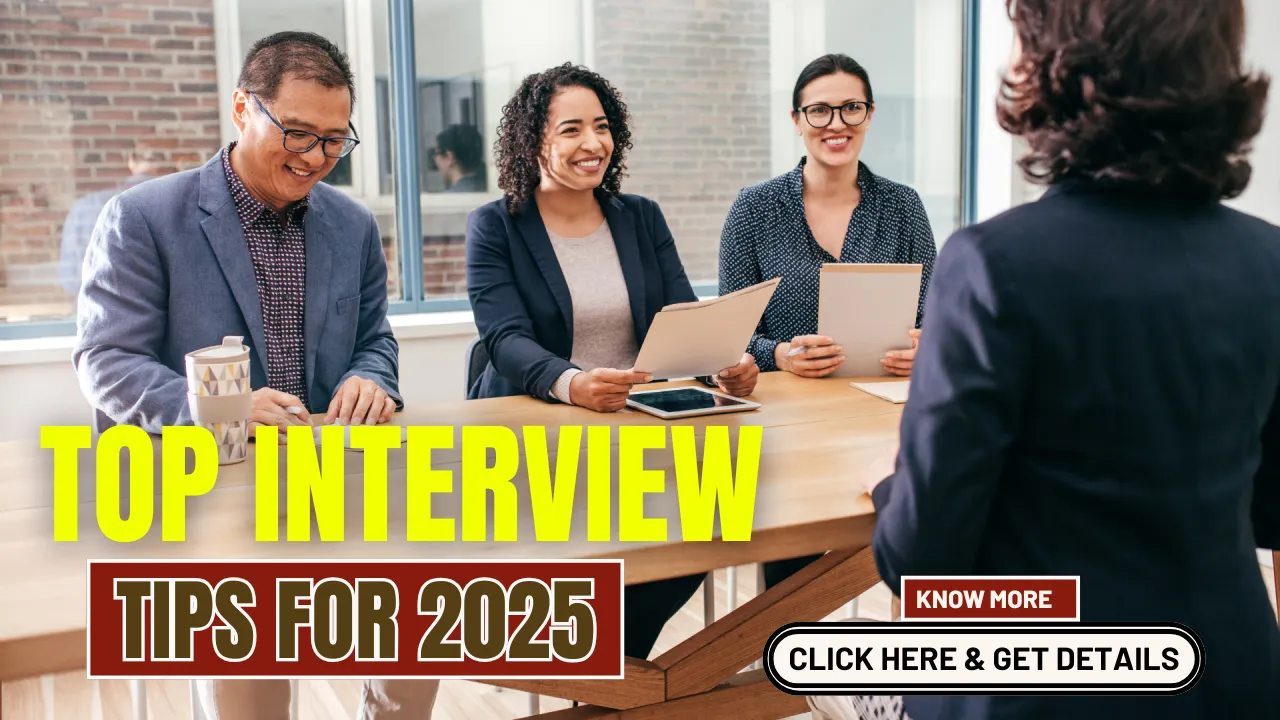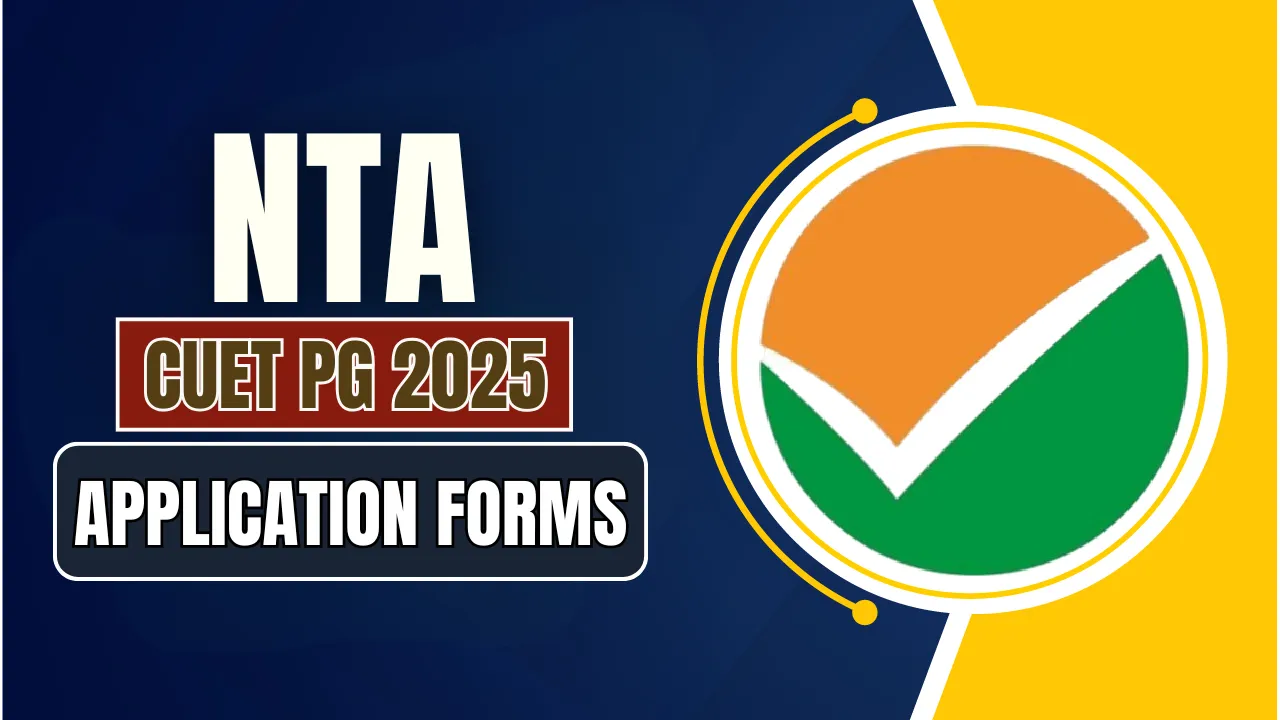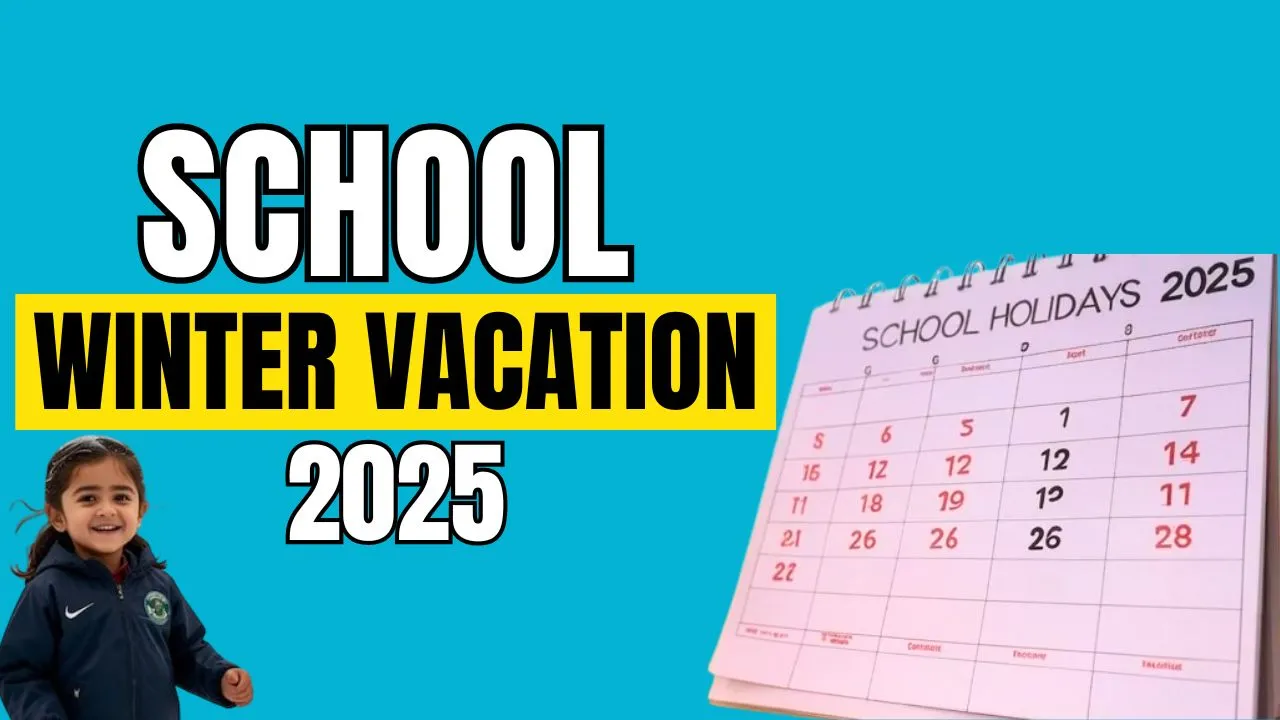Top Interview Tips for 2025: Interviews in 2025 are more competitive and dynamic than ever before, with companies seeking not just skilled candidates but also individuals who can adapt to evolving workplace trends.
Whether you’re a fresher or an experienced professional, mastering interview techniques is essential for landing your dream job. This article provides the top interview tips for 2025, guiding you to prepare, present, and excel in interviews.
Understanding the Importance of Interview Preparation
The job market in 2025 has become more demanding, with employers focusing on both technical expertise and soft skills. Preparation is no longer just about reading the job description—it’s about understanding the company’s values, the role’s responsibilities, and aligning your skills with their expectations.
Why Preparation is Key
- It demonstrates your seriousness about the role.
- Helps you handle questions confidently.
- Sets you apart from candidates who lack depth in their answers.
Overview Table: Key Interview Preparation Steps
| Step | Action | Why It’s Important |
| Research | Study the company’s mission, values, and products. | Shows alignment with the company’s goals. |
| Mock Interviews | Practice answering common and role-specific questions. | Boosts confidence and improves communication. |
| Professionalism | Dress appropriately, arrive on time, or test virtual tools for online interviews. | Creates a strong first impression. |
| Communication | Highlight skills with examples and maintain positive body language. | Builds rapport and leaves a lasting impression. |
| Follow-Up | Send a thoughtful thank-you email post-interview. | Reinforces your interest in the role and keeps you on the recruiter’s radar. |
Step 1: Research Thoroughly Before Your Interview
One of the most crucial top interview tips for 2025 is conducting in-depth research about the company. Employers value candidates who take the time to understand their business, goals, and challenges.
Steps for Effective Research
- Visit the company’s website to explore their mission and recent updates.
- Check their social media platforms for current campaigns or projects.
- Read industry news to understand trends affecting their business.
By aligning your answers to the company’s priorities, you’ll demonstrate that you’re not just looking for a job but are genuinely interested in contributing to their success.
Step 2: Prepare for Common and Role-Specific Questions
Common Questions to Practice
- “Tell me about yourself.”
- “What are your strengths and weaknesses?”
- “Where do you see yourself in five years?”
For role-specific questions, emphasize your experience and skills. For example:
- For a software developer role:
“Can you share a project where you solved a challenging coding issue?”
Prepare answers using the STAR method (Situation, Task, Action, Result) to structure your responses effectively.
Step 3: Showcase Professionalism
Professionalism is not just about dressing well—it’s about presenting yourself as a reliable and prepared candidate.
Dress the Part
- For in-person interviews, wear formal or business casual attire depending on the company culture.
- For virtual interviews, ensure a clean, distraction-free background and good lighting.
Punctuality
Arriving 10-15 minutes early for an in-person interview or logging in a few minutes before a virtual interview shows respect for the interviewer’s time.
Step 4: Highlight Key Skills
In 2025, companies seek candidates with a mix of technical expertise and soft skills like adaptability, collaboration, and communication.
How to Highlight Skills
- Provide examples where you’ve successfully used your skills.
- Mention certifications or courses relevant to the job.
- Share measurable outcomes of your past work, such as:
“Led a team project that increased efficiency by 25%.”
Step 5: Practice Effective Communication
Communication skills are among the most valued in today’s workplace.
Active Listening
Pay close attention to the interviewer’s questions and respond thoughtfully. Avoid interrupting, and clarify if needed.
Body Language
Maintain eye contact, sit upright, and avoid crossing your arms. Positive body language conveys confidence and enthusiasm.
Step 6: Be Ready for Behavioral and Technical Questions
Behavioral Questions
Employers often ask situational questions to gauge how you handle challenges. For example:
- “Describe a time when you faced a conflict in a team and how you resolved it.”
Use real-life examples and the STAR method to craft compelling answers.
Technical Qestions
If the role involves technical expertise, be prepared to discuss tools, software, or methodologies. Back your answers with examples of how you’ve applied these skills effectively.
Step 7: Ask Thoughtful Questions
Asking questions at the end of the interview shows your interest in the role and helps you understand more about the position. Some insightful questions include:
- “What does success look like in this role?”
- “What are the immediate challenges the team is facing?”
- “How does the company support professional growth?”
Step 8: Send a Follow-Up Email
A thank-you email after the interview is a simple yet impactful gesture. Use this opportunity to:
- Thank the interviewer for their time.
- Reiterate your interest in the role.
- Highlight a key point from the interview discussion.
Top Interview Tips for Virtual Interviews in 2025
With remote work trends continuing in 2025, virtual interviews are becoming more common.
Tips for Virtual Interviews
- Check Your Equipment: Ensure your camera, microphone, and internet connection are functioning properly.
- Set Up a Professional Background: Use a clean and neutral background for a distraction-free environment.
- Maintain Eye Contact: Look directly into the camera during the conversation.
Step 9: Build Resilience
Not every interview will lead to a job offer, but every experience is an opportunity to learn.
Handling Rejections
- Seek feedback to understand areas for improvement.
- Stay motivated and continue building your skills.
Upskilling in emerging technologies and earning certifications can enhance your chances in future interviews.
Final Thoughts
Mastering interviews in 2025 requires a combination of preparation, professionalism, and adaptability. By following these top interview tips for 2025, you’ll be equipped to make a strong impression on potential employers.
Remember, interviews are not just about answering questions—they’re about showcasing your value, aligning with the company’s vision, and demonstrating why you’re the best fit for the role. With the right mindset and strategies, success is within your reach!
FAQs
How can I prepare effectively for an interview in 2025?
Start by researching the company, understanding its mission, and aligning your skills with the job role. Practice common and role-specific questions using the STAR method and consider mock interviews to refine your responses.
What should I wear to an interview in 2025?
Dress professionally, either in formals or smart casuals, depending on the company culture. For virtual interviews, ensure your attire is appropriate and avoid overly casual clothing.
How can I improve my communication skills for interviews?
Practice active listening, maintain positive body language, and provide clear, concise answers. Engage in mock interviews or communication workshops to enhance your skills further.
What questions should I ask at the end of an interview?
You can ask about the role’s success metrics, team structure, or growth opportunities. For example, “What challenges does the team currently face?” or “How does the company support professional development?”
How do I handle rejection after an interview?
Use the experience as a learning opportunity by seeking constructive feedback. Focus on improving your skills and knowledge, and stay motivated for future opportunities.




